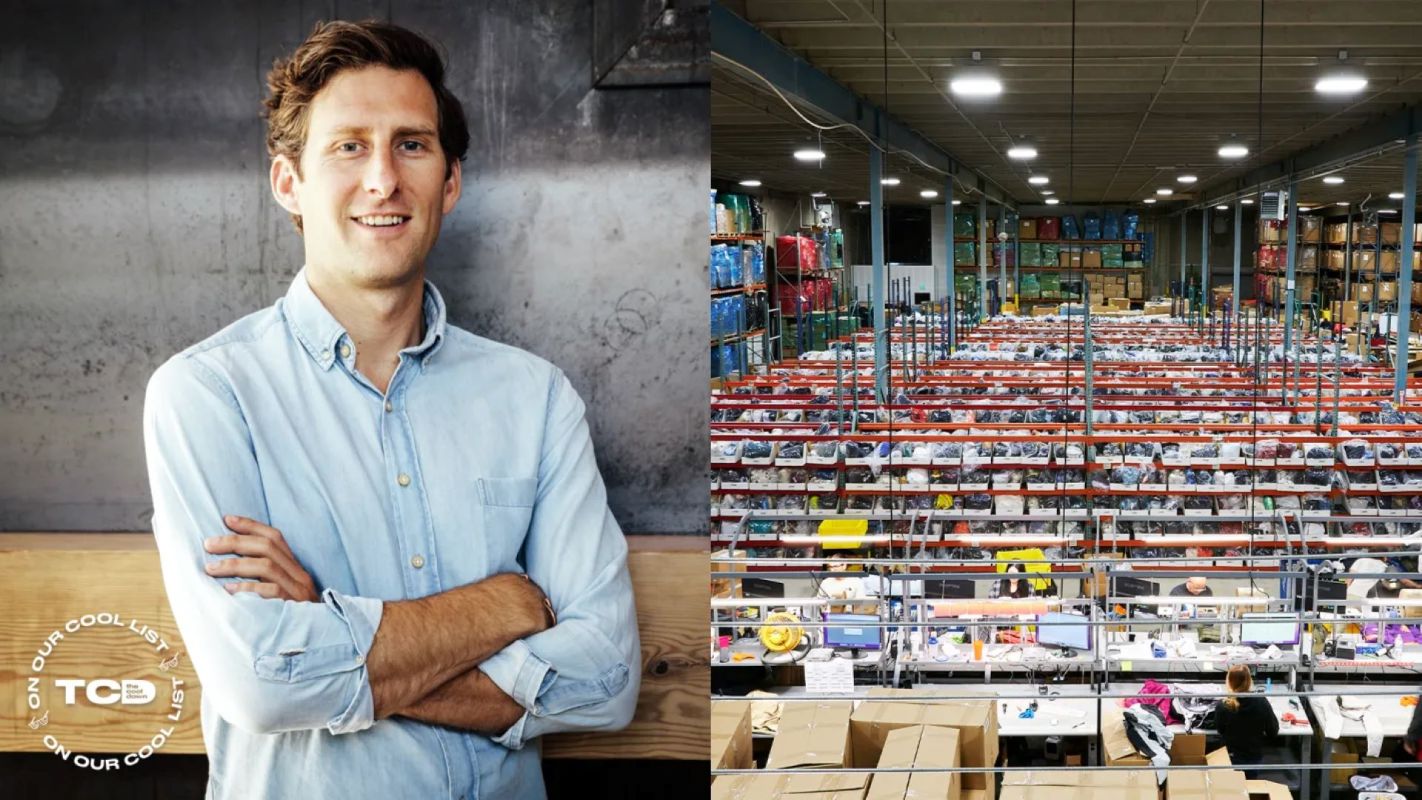Ever get that "ick" factor when you're buying something used — wondering who owned the item, or where it might have been? Well, worry no more.
One innovative startup is solving that problem for shoppers who increasingly want to buy secondhand and for companies who want to build profitable "recommerce" businesses around used clothing or goods.
TERSUS Solutions is central to the recommerce revolution, offering a proprietary technology that restores pre-loved clothes to a near-new state using a "waterless" washing machine that employs liquefied carbon dioxide to clean clothes with less environmental impact. They call it their "Cleaning as a Service" offering, and it has caught the eye of major brands, including REI, Patagonia, New Balance, and The North Face.
The Cool Down spoke to TERSUS CEO Peter Whitcomb to learn more about how their solution reduces the stigma around secondhand clothes and helps to build profitable businesses that turn second-life apparel and footwear into new revenue streams.
❓ How it works
Companies send used clothing to TERSUS, where it's loaded into industrial washers that, on their face, look like your standard washing machine. "They just happen to use CO2 as the main solvent to clean versus water," Whitcomb said.
Why? Because the method has been found to be less destructive and more effective, uses significantly less electricity — and no water.
"We pipe the CO2 in, and at pressure, CO2 turns to a liquid state," Whitcomb explained. In that state, it has low surface tension and viscosity, meaning it can easily move through the pores of just about any textile. Whitcomb says it can clean "a leather boot, a down jacket, and everything in between" to remove dirt, oils, and other contaminants.
When the CO2 washing machines depressurize, the CO2 returns to its gas state. This, in turn, dries the textiles that are being washed. "Garments go in dry and then they come out dry," Whitcomb said. "It's kind of this magical moment when stuff comes off. … There's a bit of a wow factor."
Our innovative cleantech utilizes CO2 as a byproduct from industrial waste. Our LCO2 cleaning solution is 100% waterless and requires zero dry time. The result? We saved 386K gallons of water + 185K KWH of energy in 2020 alone! pic.twitter.com/ByRDjtMjZF
— TERSUS (@TERSUSSolutions) October 8, 2021
💰 Making money — and good decisions
Many brands choose to throw out worn and returned clothing because it is deemed less costly to just trash than to repair it. As a result, about 80% of clothes end up in a landfill or incinerator while just 15% get recycled.
TERSUS helps solve that by making the repair and resale of used clothes easy and cost-effective for brands.
"Our role is to ensure that we're a profit center for every brand because as much as this is typically a brand awareness play, a sustainability play, somebody is going to look at it and say this needs to be done to, if not make money, break even," Whitcomb said.
🪡 More than just a good clean
TERSUS has expanded its offering to include repairing, restoring, and recycling garments — doing much of the work behind the scenes to ready clothes for resale.
"We've made a significant investment to become a one-stop shop for brands who want to build a branded resale channel. We consider ourselves very much the backbone of the recommerce industry," Whitcomb said.
"If you order a product from the North Face Renewed, that product has been cleaned, inspected, repaired, and photographed, if needed, by TERSUS."
🌎 Safer for the planet, safer for humans
Just how good is this liquefied CO2 at cleaning clothes? Ask the firefighters who rely on TERSUS' process to remove harmful substances from their gear. When firefighters exit a burning building, their clothes are often covered in per- and polyfluoroalkyl substances (PFAS), which are linked to cancer and other major health issues.
"Our technology removes over 98% [of carcinogens] whereas, water-based methods are maybe 50% or 60%," Whitcomb said.
A study conducted by researchers at North Carolina State University backs up Whitcomb's claim.
🏊♂️ An Olympian level of water waste diverted
"Every cycle we're running, we're saving roughly 300 gallons of water," Whitcomb said. That adds up fast. "Last year we saved over 4 million gallons of water, which is equivalent to nine Olympic swimming pools."
"We're in the Intermountain West, where water scarcity is a very, very pressing issue," said Whitcomb, who is based in water-stressed Colorado.
We support brands with our full suite of services that changes the narrative from fast fashion to a new better model of responsible consumption. ♻
— TERSUS (@TERSUSSolutions) June 15, 2021
We'd love to meet you: https://t.co/M7fPVXXQdu pic.twitter.com/BAlYhJnOYN
💨 Unlimited resource
Liquefied carbon dioxide isn't just good for the clothes getting cleaned — it's good for the planet, too. Whitcomb explained that CO2 is a waste gas and essentially an unlimited resource. It can be used, captured, and reused repeatedly.
"We're exploring ways where we can actually use CO2 captured directly from the air, like the roof of our warehouse," Whitcomb said. That would have the benefit of taking CO2, which contributes to climate change, out of the air and putting it to use in a way that preserves the planet's precious resources.
💪 Consumer demand
"Younger generations not only are seeking this, they're starting to demand the brands take responsibility for the production of their product and the ownership of their product at the end of its life. If you're Nike, if you're Adidas, you probably should start to think about how you play in the space — there's a big opportunity there to respond to the consumer expectation."
Join our free newsletter for cool news and actionable info that makes it easy to help yourself while helping the planet.









